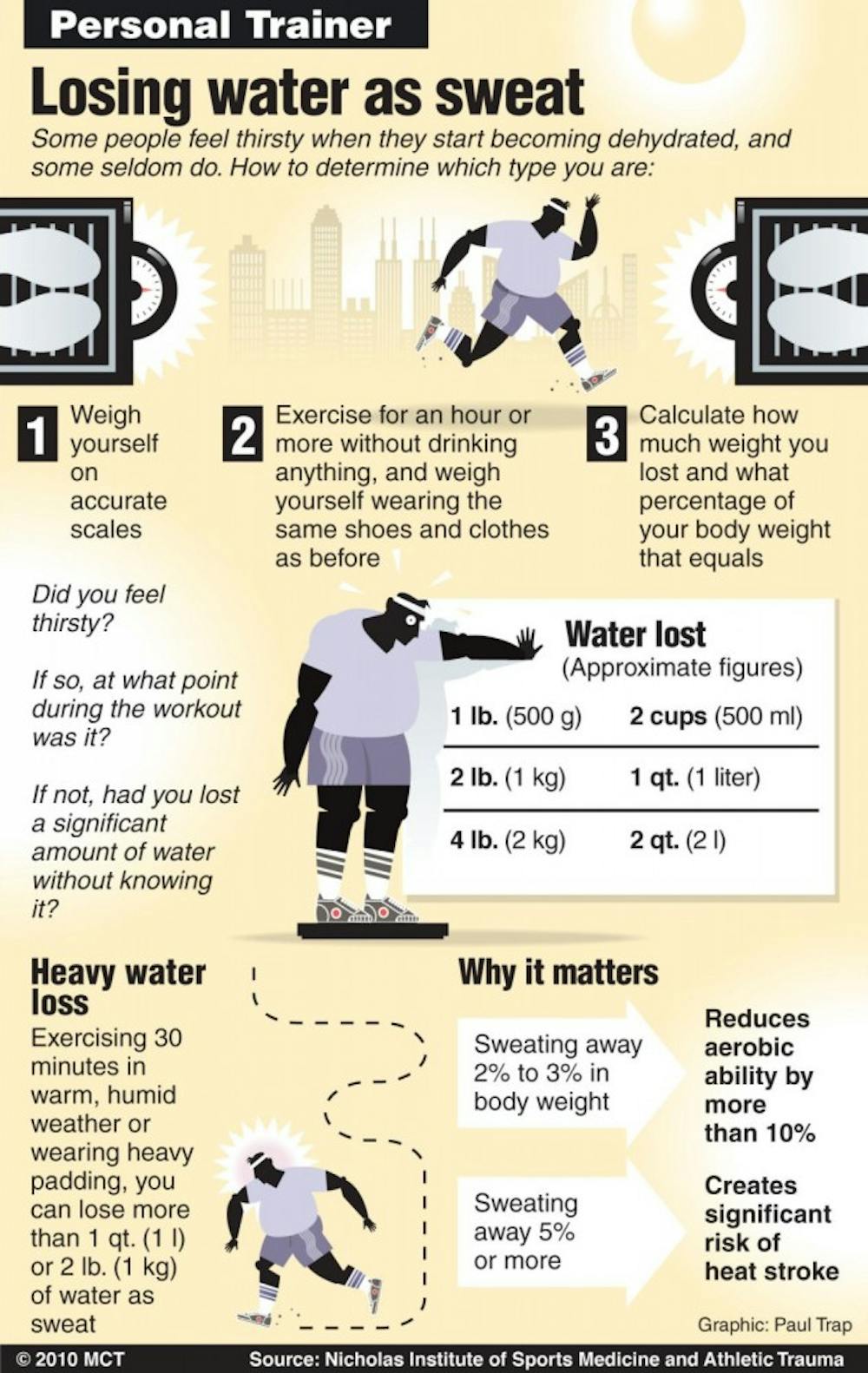I spent my Monday morning following Boston Marathon updates, checking the progress of the elite runners between classes (I admit it) on two extended trips to “fill up my water bottle” during class.
This year’s marathon was an excruciating, hot race, run in over 80-degree heat. The racers were told to hydrate frequently, and make sure to replenish the pounds of water lost while running.
The side effects of dehydration are commonly known to include chills, nausea and light-headedness, but dehydration shouldn’t be thought of as just a possible health hazard. Sports science research has concluded that being dehydrated will affect your performance by as much as 10%. That’s a 20-minute 5k dropped down to a 20:30.
The principle of hydrating seems easy enough: when it’s hot, drink more water, but there are other factors that affect hydration. I have put together a guide to stay hydrated and sweating (because sweating is healthy!) during the summer:
- Stay away from alcohol. Alcohol is a diuretic, and drinking the night before a hot run can lead to dehydration.
- Weigh yourself before and after a hot run. This way, you can see how many pounds of sweat you lost, and know exactly how much water to consume.
- Eat watermelon. It’s tasty, and the average fruit is 92% water.
- Allow flexibility on very hot days. Florida state coach Bob Branman stated in a Runner’s World article that he decreases his runners’ mileage by 20% during especially hot weeks. By cutting mileage on especially hot weeks, you will be less likely to over-train and still reap the benefits of hot weather training when the cool weather comes around.
- Travel smart. Flying on a plane is dehydrating. Air in airplane cabins is usually much dryer than the air on Earth. The longer the flight, the more dehydrated you can become by breathing in less humid air. Prepare for flights by packing a sports drink with electrolytes to drink throughout the flight, and avoid soda and other dehydrating beverages on the flight.


